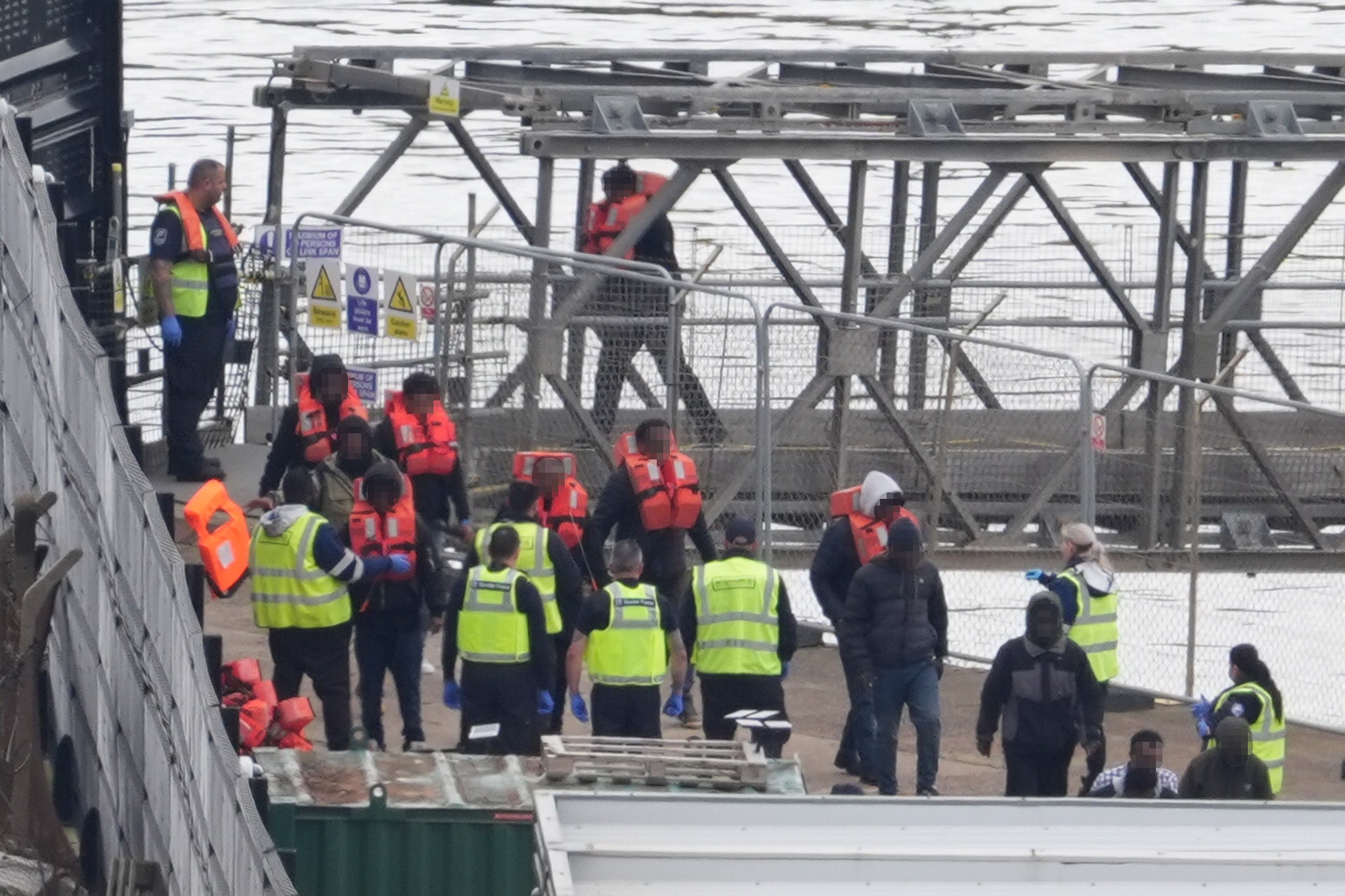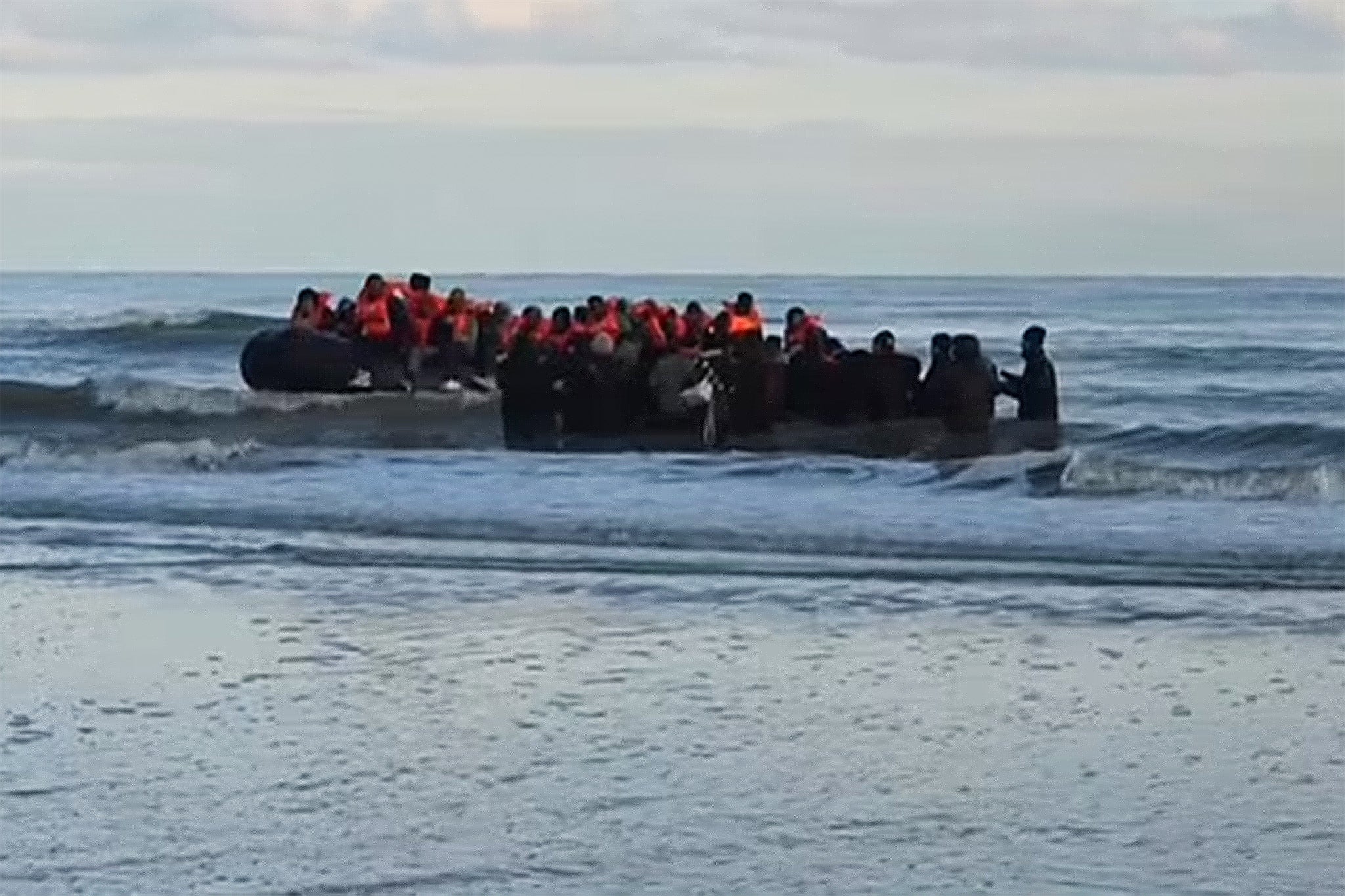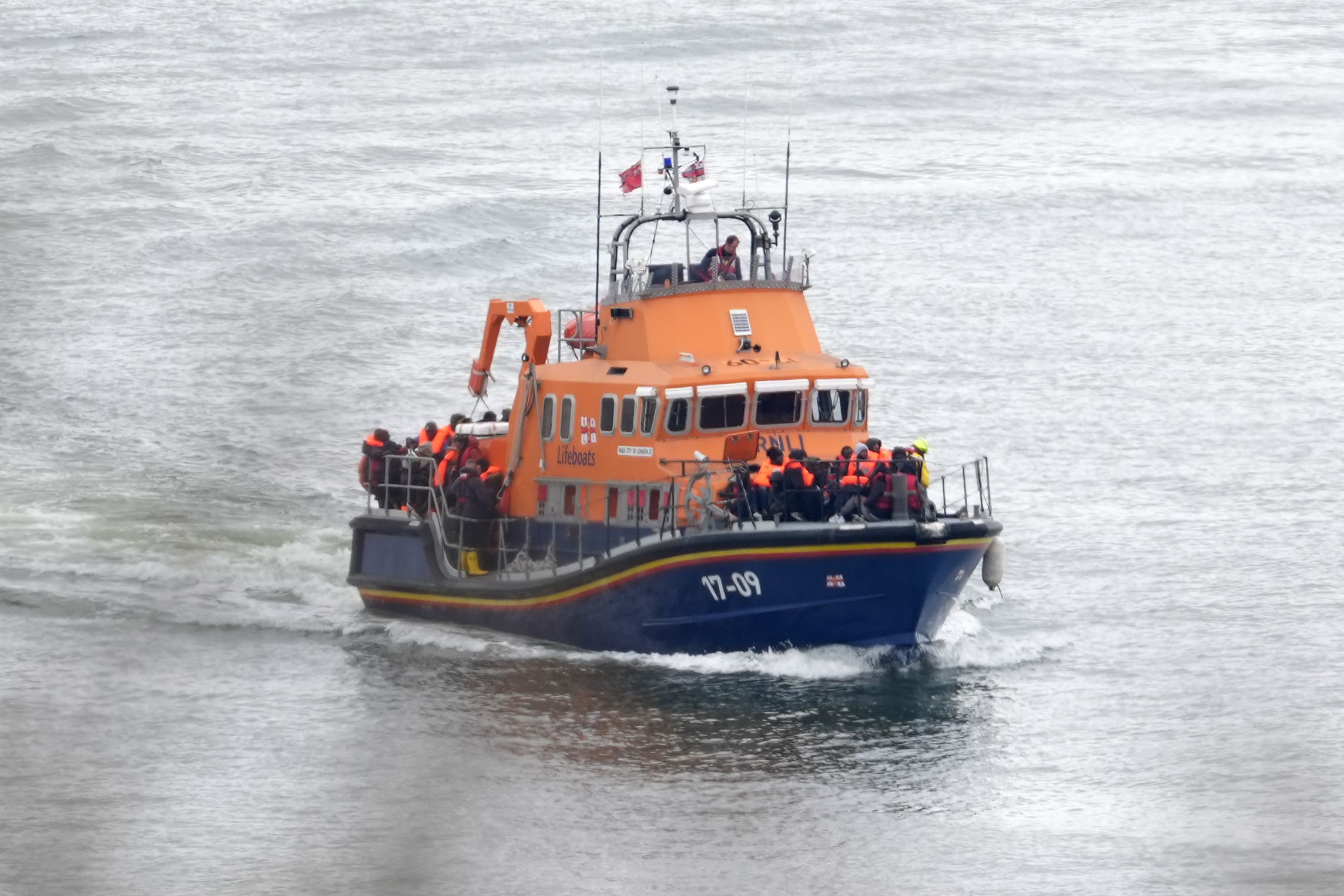Sunak’s flagship immigration bill to cause ‘system meltdown’ and trap more than 100,000 people
Analysis by Refugee Council reveals that even if government is successful in flying 2,000 people to Rwanda by end of year, a further 115,575 asylum seekers will be left stranded in UK
Rishi Sunak’s flagship immigration legislation will lead to a dire “system meltdown” and trap more than 100,000 men, women and children in permanent limbo – with taxpayers footing the billions in costs to accommodate them, a new report has claimed.
The analysis, compiled by the Refugee Council, reveals that by the end of the year, even if the government is successful in flying 2,000 people to Rwanda, a further 115,575 asylum seekers will be left stranded in the UK.
Putting all of these men, women and children into suitable accommodation, most likely hotels, will cost around £17.1m a day; more than £6.2bn a year.
The report’s release comes just days after the prime minister’s Safety of Rwanda (Asylum and Immigration) Bill passed, paving the way for the first asylum seekers to be sent to the east African country.

Under the new act, anyone who enters the UK without prior permission, whether it is by small boat or another means, is not allowed to claim asylum.
The Home Secretary, James Cleverly, is under a legal obligation to arrange for their removal to either their country of origin or to a safe third country.
There is currently no way to apply for asylum outside the UK, so this duty will impact most people who apply for asylum in the UK, the charity says.
The Refugee Council report indicates that only 9,478 people will be eligible to be removed to their own country and at most, a further 1,900 could be flown to Rwanda.
This leaves 115,575 people whose asylum claims will be deemed “inadmissible” and leave them stranded in the UK as a result. The charity argues this could leave asylum seekers at risk of exploitation and destitution.
Mr Sunak is hoping the Rwanda scheme will deter migrants from seeking to cross the English Channel.
However, 400 migrants arrived in the UK on the same day five people, including a child, died while trying to cross the Channel.
A dinghy carrying more than 100 people set off from Wimereux, on the northern coast, at around 6am on Tuesday but got into difficulty. Three men, a woman and a girl were killed, according to the French coastguard.
The United Nations and the Council of Europe have led criticism of the scheme. Filippo Grandi, the UN high commissioner for refugees, called on Mr Sunak to reconsider the plan, which he said sets a “worrying global precedent”.
Mr Grandi said the arrangement with Rwanda seeks to shift responsibility for refugee protection, undermining international cooperation, and that the legislation marks a breach of the Refugee Convention.

Council of Europe human rights commissioner Michael O’Flaherty urged the UK not to remove refugees under the policy and said the adoption of the Rwanda Bill “raises major issues about the human rights of asylum seekers and the rule of law more generally”.
Preparations for the first flights to Rwanda are due to begin within days, with asylum seekers who could be relocated being identified and potentially detained.
Charter planes are expected to leave for Rwanda in 10-12 weeks, with Mr Sunak promising “multiple flights a month”, although ministers conceded numbers being sent to Kigali will be small at first.
Some £290m has already been committed to the Rwanda scheme, with a further £100m earmarked over the next two years.
Enver Solomon, chief executive officer at the Refugee Council, said: “This report lays bare the immense cost, chaos and human misery that the Illegal Migration Act and Rwanda plan will unleash.

“It will lead to another entirely avoidable system meltdown. Instead of operating an effective and fair asylum system, the government has recklessly brought in this misguided legislation without any apparent thought to its staggering costs and long-term consequences.
“Tens of thousands of men, women and children from countries such as Afghanistan and Iran, where oppressive regimes chase down their opponents, and countries such as Sudan and Syria, where brutal conflicts have led to humanitarian crises, will be left in permanent limbo and are likely to fall out of contact with the authorities, facing exploitation and abuse.
“Rather than laying the foundations for the next asylum crisis, any government that wants a fair and efficient asylum system should repeal the legislation, stop wasting resources on futile endeavours and focus on the vital task of processing asylum claims promptly and fairly.”
A Home Office spokesperson said: “Ahead of the Illegal Migration Act coming into force, we are removing thousands of illegal migrants to their country of origin.
“Many of this cohort will be in scope for removal to Rwanda, which is an uncapped scheme, and can expect to be served removal notices in due course.
“As the Prime Minister set out this week, flights to Rwanda will take off in ten to twelve weeks, creating the deterrent needed to end the criminal exploitation of migrants by the people smuggling gangs.”
Join our commenting forum
Join thought-provoking conversations, follow other Independent readers and see their replies
Comments
Bookmark popover
Removed from bookmarks